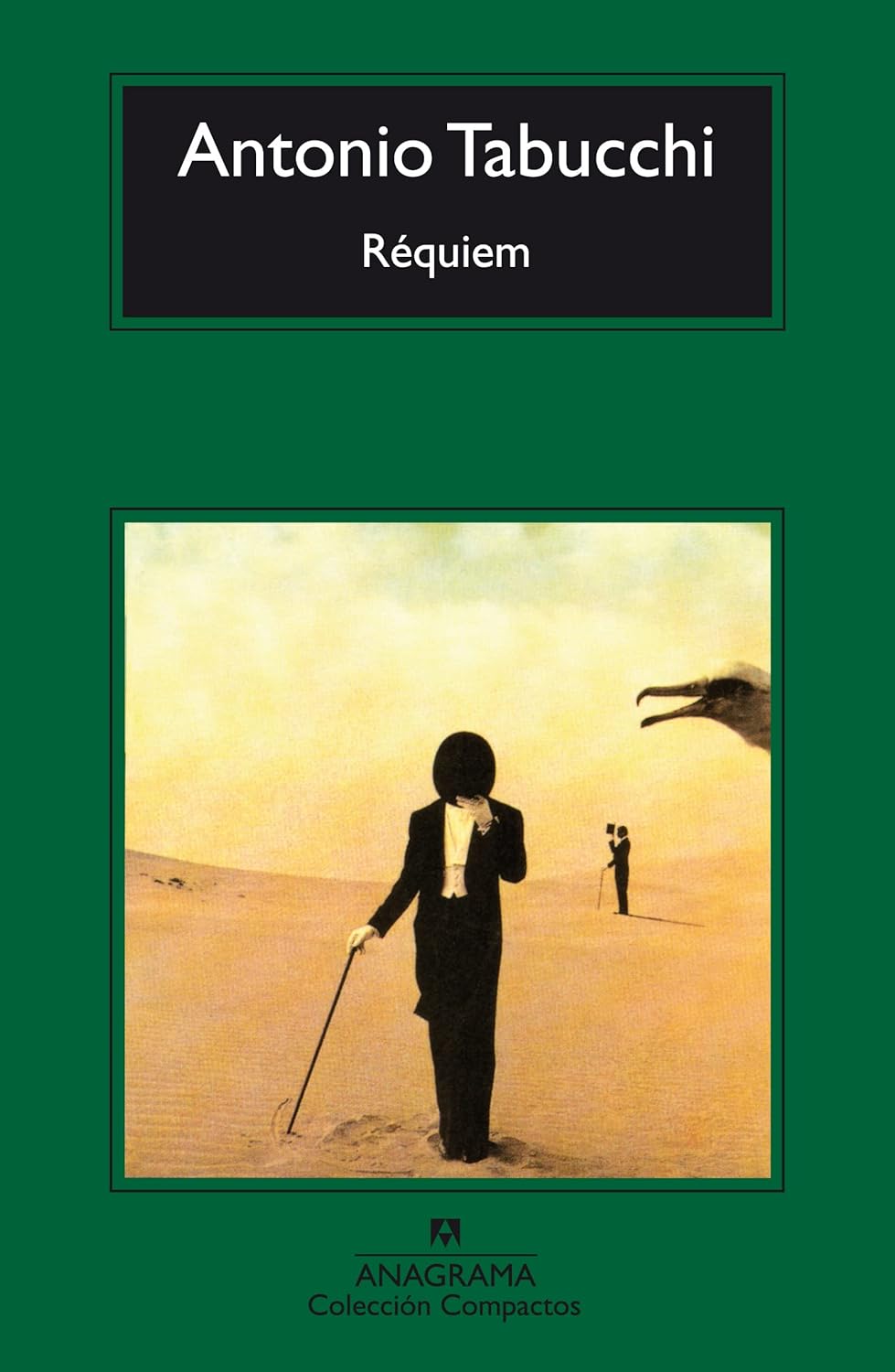What do you think?
Rate this book


144 pages, Paperback
First published January 1, 1991
Should anyone remark that this Requiem was not performed with due solemnity, I cannot but agree. But the fact is that I chose to play my music not on an organ, which is an instrument proper to cathedrals, but on a mouth-organ that you can carry about in your pocket, or on a barrel-organ that you can wheel through the streets.
I'm almost convinced that I'm never awake. I'm not sure if I'm not in fact dreaming when I live, and living when I dream, or if dreaming and living are for me intersected, intermingled things that together form my conscious self.—Fernando Pessoa, The Book of DisquietHave you ever read a book, and felt that it embodies your 'ideal' writing in many ways? Requiem was such a novel for me—my favourite authors, Haruki Murakami and Fernando Pessoa, as well as other novels such as Hermann Hesse's Steppenwolf, had made me feel that I wanted to write in a way which mixed dreams, memories and impressions from other times and places with the world of reality, and I had a real glimpse of what that can look like with this story.
As an author, writing is something akin to dreaming while being awake. It's the kind of undefinable experience which lies outside the boundaries of logic.From the very first page of the story, actually, even the author's introductory note and the list of characters preceding that, I knew this was going to be a special book. Tabucchi learned Portuguese to read Pessoa in the original, and the atmosphere and tone in this book, set in Portugal and written in Portuguese as 'a story like this could only be written in Portuguese', for me felt connected to the one in The Book of Disquiet, my all-time favourite book.
I wake up every morning so I can dream.—Haruki Murakami, 2003 interview for Le Nouveau Magazine Littéraire
I have to choose what I detest—either dreaming which my intelligence hates, or action, which my sensibility loathes; either action, for which I wasn't born, or dreaming, for which no one was born.I have always been fascinated by dreams. For most of my 20's, I have kept a dream journal in which I write down the lives I've experienced while sleeping. Even in the last ten days, I have been in a dungeon where many cats appeared one by one, consumed three naked women in the form of fried rice and red wine, contested several 1-on-1 battles in soccer with a female schoolmate, and made an assist with the outside of my right foot to Shakhriyar Mamedyarov, an Azeri chess grandmaster, been called into a shift at a stall at a carnival by my manager at work, laughed at one of my close friends who stretched his penis up to his face, and had to walk up to the front of the class to demonstrate on a whiteboard, the graph for y = x-(1/s).
Detesting both, I choose neither; but since I must on occasion either dream or act, I mix the two things together.—Fernando Pessoa, The Book of Disquiet
I dream. Sometimes I think that’s the only right thing to do. To dream, to live in the world of dreams. But it doesn’t last forever. Wakefulness always comes to take me back.—Haruki Murakami, Sputnik SweetheartI have contacted people I haven't talked for years when they appeared in a dream of mine, I've met some virtual Goodreads friends in dreams (even their mothers), and although sleep has never come easily to me from when I was little, perhaps it would be too good a deal if I could visit without any struggle these worlds which often show the infinite possibilities and impressions inside the human condition in a deeper, more truthful and beautiful way than reality in some ways.
Dreaming is the one thing we have that's really ours, invulnerably and inalterably ours. Life and the Universe—be they reality or illusion—belong to everyone. Everyone can see what I see and have what I have, or can at least imagine himself seeing it and having it, and this is...Tabucchi's protagonist goes through his day, where there is no boundary between the ordinary and extraordinary, the past and the present. It reads like nothing out of the ordinary is happening, even though this is far from the case. This is a short novel that could be read in one sitting, but there is a limit to how many dreams one can have in a night, so I savoured the pages over four days.
But no one besides me can see or have the things I dream. And if I see the outer world differently from how others see it, it's because I inadvertently incorporate, into what I see, the things from my dreams that stuck to my eyes and ears.—Fernando Pessoa, The Book of Disquiet
If a little dreaming is dangerous, the cure for it is not to dream less, but to dream more, to dream all the time.—Marcel Proust, In Search of Lost TimeI was amazed at what Tabucchi managed in 100 pages. The segments, transitions, open ends, conditionals and diverging paths. The characters, conversations, humour, beauty in the mundane, and humanity. A beautiful requiem, hallucination, dream, real life story, and novel—I will be reading more of Tabucchi very soon.
I fused the beauty of dreaming and the reality of life into a single blissful colour.—Fernando Pessoa, The Book of Disquiet, and now also, Antonio Tabucchi, Requiem: A Hallucination
